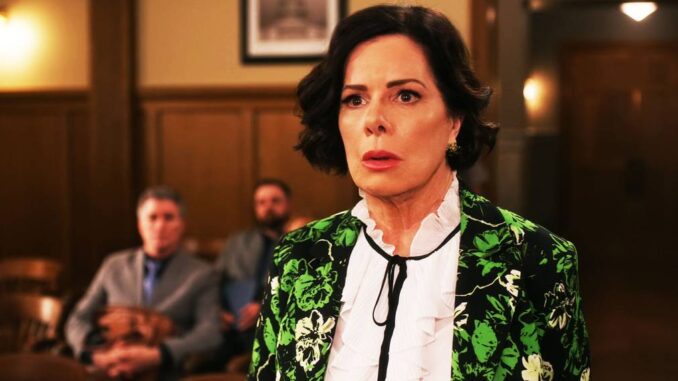
The Echo of Cancellation: When Fandom Fights for its Procedural Home
The glow of the television screen, once a beacon of comfortable familiarity, now felt like a mocking reminder. For over a decade, Tuesdays had been reserved for “The Crossroads Files,” a CBS procedural that charted the lives of dedicated detectives solving the mysteries that plagued the fictional town of Crossroads. Then came the announcement: Cancellation. No fanfare, no elaborate goodbye, just a quiet termination buried in the network’s quarterly financial report. But what CBS hadn’t anticipated was the roar of the Crossroads Collective, a fandom so dedicated, so invested, that they wouldn't let their favorite show fade into the digital ether without a fight. Their petition, a digital tapestry woven with threads of affection and unwavering support, had garnered over 50,000 signatures and sparked a conversation about the power of fandom in the age of streaming.
The cancellation, shrouded in ambiguity, felt particularly jarring. Ratings, while not spectacular, were steady, and the show consistently delivered a reliable viewership. The whispers circulating online pointed to a shift in network strategy, a prioritization of newer, flashier content designed to appeal to a younger demographic. This, in itself, wasn't inherently objectionable. Television, after all, is a constantly evolving landscape. However, the abrupt dismissal of "The Crossroads Files" felt like a betrayal to the loyal viewers who had turned to its predictable, yet comforting, formula week after week.
"The Crossroads Files," like many successful procedurals, thrived on familiarity. The characters, with their quirky personalities and unwavering commitment to justice, felt like old friends. Detective Miller, the stoic veteran haunted by a past mistake, Detective Ramirez, the sharp, empathetic newcomer bringing fresh perspectives, and even the eccentric medical examiner, Dr. Chen, who had a penchant for quoting obscure poetry, had become a beloved part of the audience's Tuesday night routine. The cases, though often formulaic, provided a framework for exploring broader themes of community, justice, and human connection.
It was this very familiarity that fueled the fandom's outrage. "The Crossroads Files" wasn’t just a show; it was a ritual, a shared experience. For many, it was a source of comfort in a chaotic world, a reliable escape from the anxieties of everyday life. The show's cancellation felt like the rug being pulled out from under them, leaving them adrift in a sea of fleeting, disposable content.
The online petition became the focal point of the protest. It wasn't just a list of names and email addresses; it was a passionate testament to the show's enduring appeal. Fans shared personal anecdotes, recounting how the show had helped them through difficult times, how it had sparked conversations with family members, and how it had inspired them to pursue careers in law enforcement or medicine. One signature came from a retired police officer who credited the show with accurately portraying the challenges and rewards of his profession. Another came from a group of teenagers who used the show's plot lines as inspiration for their own creative writing projects.
The petition also highlighted the economic implications of cancellation, emphasizing the potential loss of revenue for the local community of Crossroads, a fictional town that had nonetheless become a tourist destination for dedicated fans. Local businesses, from the Crossroads Diner to the quirky antique shop often featured in the show, had benefitted from the show's popularity, and their owners feared the economic impact of its demise.
The campaign extended beyond the digital realm. Fans organized letter-writing campaigns, flooding CBS headquarters with heartfelt pleas. They even staged a peaceful protest outside the network's offices, armed with signs and banners proclaiming their love for "The Crossroads Files." While the protest was relatively small, it garnered media attention, amplifying the fandom's voice and forcing CBS to acknowledge the outcry.
The story of the "Crossroads Files" cancellation and the ensuing fan campaign is a testament to the evolving relationship between creators and audiences. In an era where content is readily available and easily consumed, the power of fandom has become increasingly significant. While the ultimate fate of "The Crossroads Files" remains uncertain, the petition and the outpouring of support have demonstrated that fans are no longer passive consumers of entertainment. They are active participants, capable of mobilizing and advocating for the shows they love, challenging the decisions of network executives and reminding them that sometimes, the most valuable commodity is not the newest trend, but the enduring loyalty of a dedicated audience. The echo of cancellation, amplified by the voices of over 50,000 fans, resonated far beyond the confines of CBS headquarters, proving that even in the vast landscape of modern television, the power of community can still make a profound difference.
